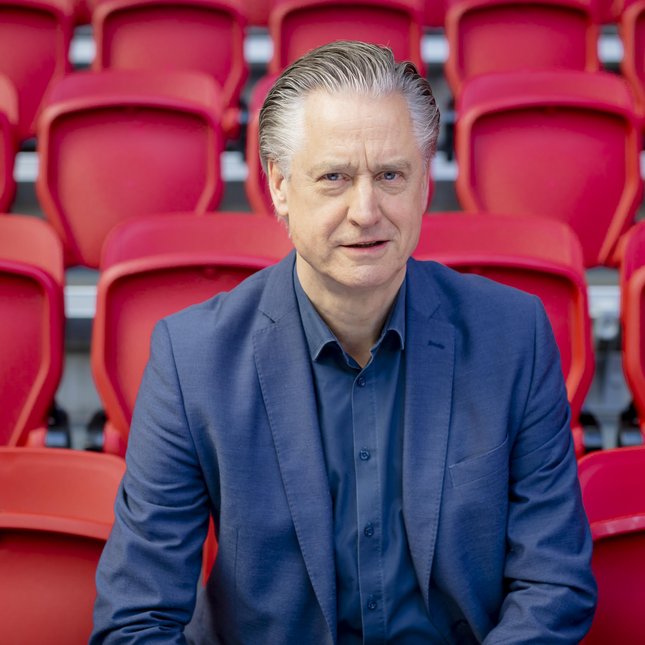Henk Markerink, CEO of the Johan Cruijff ArenA
He literally started designing bridges during his Architecture, Urbanism and Building Sciences study program at TU/e. He still does this every day, but only figuratively. Bridge builder Henk Markerink trained as an architect and has been the general manager of the Johan Cruijff ArenA in Amsterdam for almost 26 years now. A surprising career path perhaps, but at the same time a very logical one for Henk. His time in Eindhoven shaped him into the person he is today.

“Whatever study program you take at TU/e, they all have something in common. The main thing you learn is a way of thinking - from highly conceptual to implementation. Engineers don't just think up things, but they also make sure they are carried out. That mindset is a kind of DNA that is injected into you and that you carry with you for the rest of your life. My student days may have been the best time of my life. If I were to study again tomorrow, I would choose Architecture, Urbanism and Building Sciences again.”
Passion for innovation
Henk is creative and has a real passion for innovation. He is enterprising and always looking ahead. People around him describe him as someone 'who doesn't sit around and wait for someone else to come up with an idea'. He wants to do something meaningful and above all help others. In his career, he slowly progressed from technician to manager and consultant. Starting as a designer of bridges and supporting structures in Lemmer, he became head of departments at Arcadis and later a partner at the consultancy firm Twynstra Gudde. There he became closely involved in the design and construction of the ArenA. When he was asked in 1995 if he wanted to become the general manager, it was an opportunity that he couldn't pass up.
“I use the skills that I learned at TU/e here every day. This job also involves research and development, project implementation and entrepreneurship. We are heavily involved in innovation and sustainability. We were the first stadium with solar panels and we set up an innovation center. The role of the stadium has been continuously expanded. For example, we were co-developers of the Ziggo Dome and the entire area around the stadium. We drew up a plan for 1000 jobs in the Bijlmer district. Furthermore, we run a separate private limited company for consultancy, through which we advise stadiums all over the world.”
Opportunities
Henk speaks with pride about the ArenA, but with modesty about his own work. “I don't work alone. The more good people you have around you, the more successful you will be. I've had great opportunities; that's why I'm here. Look, after you graduate you carry a significant piece of luggage. Trains pass by. You either get on one of those trains or you don't. It's all about seizing opportunities at the right moment. You can go far with the mindset that you develop at university."
Giving back
Henk has had more contact with his old university lately. "I often give lectures in other countries and would like to do that at TU/e as well. I want to transfer my knowledge and experience and give something back to society. Teaching gives me satisfaction. Running a stadium is a highly specialized profession; I think there are still many interesting things that students from Eindhoven can do here."
Letting go
Henk's time at the ArenA will soon come to an end and his retirement is approaching. "I think I'm leaving the ArenA in good shape. It will always be my baby, but now I have to accept that it's growing up. I have to let it go. After all, I'm still the project leader and this project is finished."
The next project is already here: Henk is the new chair of VNO-NCW for the Amsterdam metropolitan area. Speaking of opportunities and challenges: "Twenty-five percent of the Dutch economy is concentrated here. The challenge is to get that economy up and running again after this crisis. That's what I'll be working on in the coming time."
Hero
Is he a hero? That's not how he sees himself. Others do, however. Although the definition of hero is not clear-cut for him. "Someone like Elon Musk, who turned the entire automotive industry upside down with his Tesla and then also sends rockets to the moon - that's entrepreneurship on a completely different level. However, people who play a valuable role in society are also heroes, even if they are not recognized as such. I admire people who can really break through trends, but also those who are less visible."